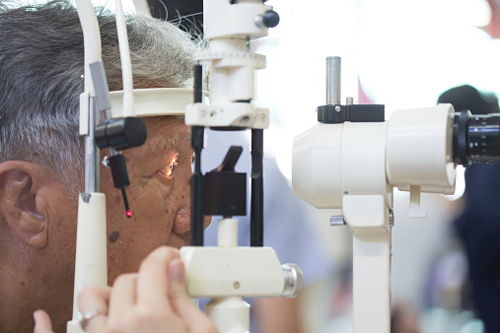 Carotenoids have long been known to promote eye health.
Carotenoids have long been known to promote eye health.
A new study published in JAMA Ophthalmology found that increasing your intake of the dietary carotenoids lutein and zeaxanthin is linked with the long-term reduction of an eye disease called advanced age-related macular degeneration (AMD). It is a condition that develops when the macula becomes damaged.
The authors of the current prospective cohort study note that previous evidence from a 2008 clinical trial follow-up on the protective effects of zeaxanthin and lutein on AMD have been inconsistent with cohorts from the Nurses’ Health Study (NHS) and the Health Professionals Follow-up Study (HPFS).
For the current study, the researchers aimed to further examine the link between advanced AMD and lutein and zeaxanthin from the 2008 report using data from the NHS and HPFS studies.
“With an additional decade of follow-up and the occurrence of a large number of additional incident AMD cases, we aimed to provide more detailed insights into the roles of carotenoids in the development of AMD,” explained the study authors in the recent report.
The study included 38,603 men and 63,443 women who were followed from 1986 to January 31, 2010, in the HPFS, and from 1984 until May 31, 2010 in the NHS. Study participants were 50 years old and older, and had not been diagnosed with diseases such as cardiovascular disease, diabetes mellitus, AMD, and cancer (besides non-melanoma skin cancer).
In the 26-year follow-up in the NHS and 24-year follow-up in the HPFS, the research team found 1,118 advanced and 1,361 intermediate cases of AMD. Plasma carotenoid scores had been calculated from self-reported carotenoid intake. The researchers then found about a 40% lowered advanced AMD risk when compared with lutein and zeaxanthin score predictions.
“Lutein and zeaxanthin form macular pigments that may protect against AMD by reducing oxidative stress, absorbing blue light, and stabilizing cell membranes,” added the study authors.
The researchers also observed a significant link between macular pigment optical density, and lutein and zeaxanthin in experimental and cross-sectional studies. Evidence would also suggest a link to genetic variations and macular pigment optical density or AMD, and lutein and zeaxanthin metabolism.
The researchers believe that the antioxidant activity of lutein and zeaxanthin are responsible for reducing oxidative stress on a systemic level that could influence the macula indirectly.
The best dietary sources of lutein and zeaxanthin include green leafy vegetables like spinach, kale, collard greens, Swiss chard, and romaine lettuce. Other good vegetables of the carotenoids include broccoli, asparagus, green peas, Brussels sprouts, and summer squash.
For further prevention of advanced AMD, supplementing with zeaxanthin and lutein daily, along with a meal, is a good idea. The general recommendation is three milligrams of zeaxanthin and 15 milligrams of lutein.
Sources for Today’s Article:
Wu, J., et al., “Intakes of Lutein, Zeaxnthin, and Other Carotenoids and Age-Related Macular Degeneration During 2 Decades of Prospective Follow-up,” JAMA Ophthalmology, 2015; doi: 10.1001/jamaopthalmol.2015.3590.
Phillips, D., “Carotenoid-Rich Diet May Protect Against Advanced Eye Disease,” Medscape Multispecialty web site, October 14, 2015; http://www.medscape.com/viewarticle/852607.
Balch, J., et al., Prescription for Natural Cures: A Self-Care Guide for Treating Health Problems with Natural Remedies Including Diet, Nutrition, Supplements, and Other Holistic Methods (Hoboken: John Wiley & Sons, Inc., 2004), 381-384.
Mateljan, G., The World’s Healthiest Foods: Essential Guide for the healthiest way of eating (Seattle: George Mateljan Foundation, 2007), 740.
